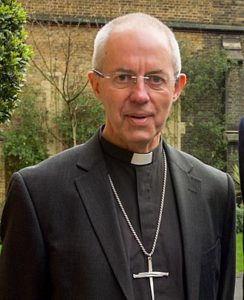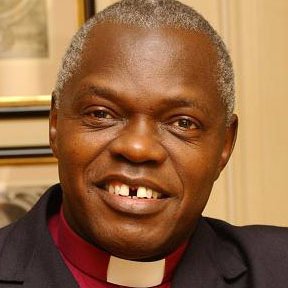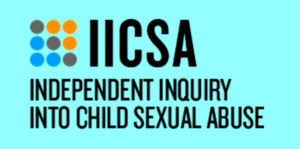
What do these two deaths have in common? In the first place neither of them would have happened if the Church had taken more seriously reports of abuse and violence in the first instance. A case against each of the men involved, Peter Ball and John Smyth, had been established to a high level of probability. While Peter Ball may not have gone on to abuse further victims after his police caution in 1992, the refusal of Church authorities to inhibit his ministry must have preyed heavily on his existing victims. Neil Todd himself seems to have reached out many times asking to be heard, only to be ignored and pushed back. Whatever the precise reasons for his death we might reasonably say that he died suffering from the trauma of sexual abuse which was severely aggravated by institutional neglect on the part of the Church.
The second disturbing link between the two stories is in the way that the two perpetrators avoided justice. Ball eventually was sent to prison but Smyth has not yet faced a proper trial. Both kept away from courts through exercising their considerable social power. Letters supporting Peter Ball were written by people of high social standing to the Director of Public Prosecutions. There were apparently two thousand of these letters. The writers of these letters probably had no knowledge of whether Ball was guilty or not. They simply felt that it was wrong to accuse an apparently charming, charismatic and holy man of such terrible actions. The Archbishop of Canterbury at the time, George Carey, also fell victim to the social charm exercised by Ball and allowed him to continue his ministry.
The facts as to how Peter Ball avoided justice for so long will be examined afresh in July at the IICSA hearings. Whether anything new remains to be revealed is another matter. A curious detail, yet to be explained, is why George Carey sent in a witness statement to IICSA claiming not to remember anything untoward about the Chichester Diocese during his tenure as Archbishop. I have no doubt that the question of the protection of Ball by many establishment figures will be commented on.
The Smyth affair is not due to have forensic examination by IICSA. Arguably though it is still a gaping wound in the church that has more to be revealed about it. There are simply too many unanswered questions. Some of the questions concern Archbishop Welby himself. He claims to have had no contact with the organisation that organised the Iwerne camps after he left for Paris in 1978. It is suggested that Welby returned on several occasions to give talks at these camps. According to Bishop Alan Wilson it is also inconceivable that Welby would not have known that Smyth had left Britain under a cloud. A report on Smyth’s behaviour was drawn up by Mark Ruston, an Anglican priest in 1982. Even though the accusations against Smyth were accepted by him as true, nothing was done to inform the authorities. Smyth was allowed to depart for Zimbabwe and later South Africa. Welby knew Ruston extremely well having had digs in his Cambridge Vicarage during his last year in Cambridge in 1978. The authorities at Winchester College were also fully aware of Smyth’s behaviour but again nothing was done to report this to the authorities. The whole secrecy surrounding the affair – something in which many must have colluded -has the aroma once again of an establishment cover-up. All the people involved from the boys themselves to the Trustees of the camps came from an elite group within British society. They also form a strong network within one powerful stratum of Anglican evangelicalism. Many of Iwerne’s ‘graduates’ occupy positions of high responsibility within Church and State and the whole affair has no doubt caused considerable embarrassment within these circles.
Two deaths of young men separated by twenty years. Both were preventable deaths if warnings of the evil behaviour on the part of two socially powerful individuals had been given earlier. One mourns these deaths, not in the sense of having known the individuals personally but because they represent and stand for the pain of many others who have been caught up in abuse cases before and after them. What are the common features in these stories?
First there was some toxic theology at work in both episodes. Toxic theology is like a fungus. It grows and flourishes in settings where groups of people collude together in unhealthy thinking. Ball’s theology was a distortion of an understanding of the monastic tradition. Smyth had a reading what true commitment to God involved and that included the ability and readiness to suffer pain.
Second. Both perpetrators were powerful individuals within the church. They were looked up to by many others and this afforded them protection from scrutiny both within the group and from the outside. Abuse was allowed to happen with ultimately tragic consequences.
Thirdly the stories show that evil selfish actions by individuals can result in tragedy of the worst kind. No one can ever pretend that sexual abuse or any other kind of abuse in the church has no consequences. It does and there is an obligation on all of us to fight abusive behaviour with every means available to us.
In this post we remember two individuals -victims of religiously inspired abuse. Their deaths lie at the door not only of their abusers. Those who kept secrets or covered up in any way for the abusers must share some of the blame for their deaths.
May Neil and Guide rest in peace and rise in glory.





